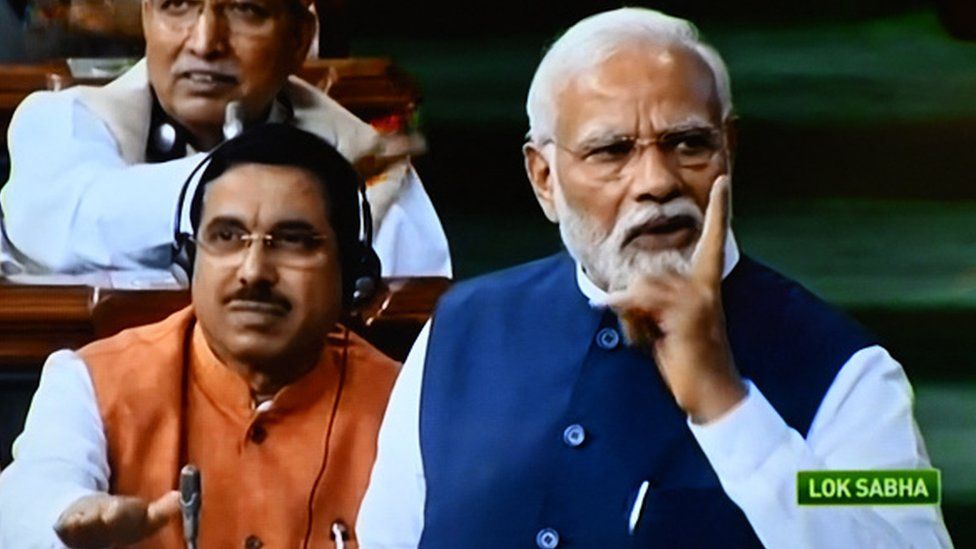
India’s Prime Minister Narendra Modi has defeated a no-confidence vote in the parliament after a three-day debate.
His government was not expected to lose the vote as his Bharatiya Janata Party (BJP) and its allies have a majority.
Mr Modi criticised the vote as an attempt by opposition parties to “defame India”.
Opposition leaders say the vote was moved to force him to speak on the ethnic clashes in Manipur state.
More than 150 people have died and tens of thousands have been displaced in Manipur since May, when clashes broke out between the majority Meitei group and the tribal Kuki minority. Mr Modi publicly addressed the violence weeks later, after a video that showed two women being paraded naked by a mob sparked global outrage.
The parliament session, which began on 20 July, has been marked by protests from the opposition which demanded that Mr Modi address the house on the violence in the state.
On Thursday, before the no-trust vote, the Opposition walked out of the parliament after Mr Modi failed to mention Manipur over an hour into his speech.
Late into his two-hour speech, Mr Modi said the federal and the state government were working together to bring back peace in the troubled state.
“I also want to tell the people of Manipur that the country is with you, this house is with you. We will join hands and find a solution to this challenge together,” he said.
He also accused the Opposition of using Manipur “for political games”.
“They have no faith in the people of India, in the abilities of India,” Mr Modi said. “They have tried in vain to break the self-confidence of Indians with this no-confidence vote.”
This is the second time that Mr Modi’s government has defeated a no-confidence motion since it came to power in 2014.
In 2018, a lawmaker had moved a motion over the issue of granting a special category status to southern Andhra Pradesh state. It was defeated after a 12-hour debate.
BBC News India is now on YouTube. Click here to subscribe and watch our documentaries, explainers and features.

Read more India stories from the BBC:

